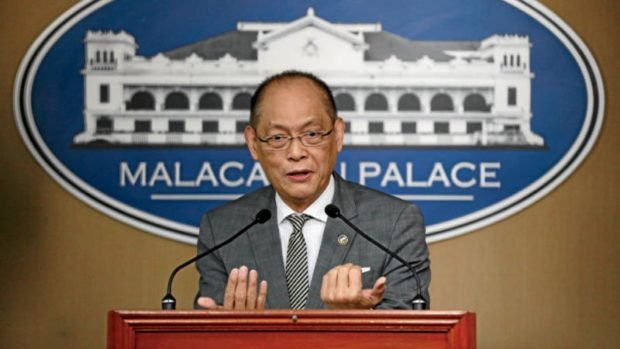Dominguez: BSP under Diokno will remain independent

Former Budget Secretary Benjamin E. Diokno is now BSP governor. (File photo from the Philippine Daily Inquirer)
Economic managers on Wednesday allayed fears that the appointment of Benjamin E. Diokno as Bangko Sentral ng Pilipinas (BSP) governor was “politicized” and would reduce the independence of the central bank in making policy decisions.
Finance Secretary Carlos G. Dominguez III, the head of the Duterte administration’s economic team, told The Manila Times’ Ninth Business Forum that the BSP charter was “very clear” in maintaining the independence of the central bank and the Monetary Board, its highest policymaking body, when it comes to monetary policy.
“There is no plan or no effort to take over or influence their decisions. I sit in the Monetary Board, and what I do there, I take off my finance secretary hat. And really, the way the deliberations are done, is that they take a look at the data — they have very, very good analysts,” said Dominguez, who represents President Rodrigo Duterte’s Cabinet in the seven-member body.
“BSP people are world-class,” he added. “And they look at the data, they make their recommendations, and the Monetary Board looks at these recommendations and they make a decision.”
As the government’s representative, Dominguez noted that he has only one-seventh of the vote.
“As you know in any voting, that is very small,” he said. “So, generally, we come into a consensus. And this administration does not interfere with monetary policy.”
“The Monetary Board evaluates on the basis of analyzed data. They will not change because that is the proper way to do it. There are such things as institutions and individuals. We want to strengthen institutions by putting the right individuals there,” he added.
For Dominguez, Diokno is “the most qualified” for the top BSP post. He noted that the former budget secretary had several economics degrees tucked under his belt, on top of a vast experience working not only in the government but also in the private sector and academe.
In a separate press conference, Diokno said he was most qualified for the job even as critics assailed the President’s appointment of an “outsider” or a non-BSP career official.
“Number one, I’m not a politician. In other countries, it’s normal that the chairman of the Fed [US Federal Reserve] or the governor of the central bank come from the academe,” Diokno said. “The prerogative to appoint the governor is the President’s. So I do not question his decision, and nobody should. There’s no birthright to claim that the governor should come from this group or that group.”
“In fact, what is bad is you appoint a banker — anybody but a banker. You don’t want a banker as a central bank governor because then you appoint one of the boys to the central bank. And that’s bad for the economy,” he added.
Diokno said about eight names were submitted for the President’s consideration for the BSP governor position.
He said that during a meeting for the crafting of the implementing rules and regulations of the Rice Tariffication Law last Tuesday Dominguez asked him for recommendations.
“I said any of the deputy governors can be considered. I said: Don’t appoint a banker or a former banker. And then he [Dominguez] said: ‘Why not you?’” Diokno recalled.
And he replied: “Sure, why not?”
While Diokno as an economist and as a former Department of Budget and Management (DBM) secretary was accessible and freely responded to media’s queries, he said he would no longer immediately comment or issue statements, especially on monetary policy.
“I have to be more circumspect than before rather than make direct statements,” Diokno said, noting that the Monetary Board would normally go through a process of reviewing evidence and studying the implication of every policy move. /atm
